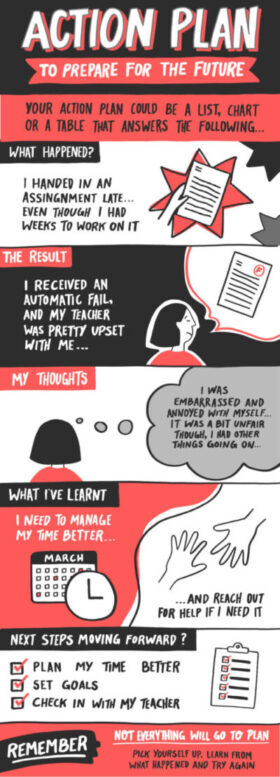Have you ever been faced with something that didn’t go according to plan?
Maybe it was something you’d been preparing for for a while like an exam, a speech, a performance or a sports match.
Or maybe it was something that was more ‘on the fly’ that you thought would be easy, but in the end, it turned out to be the opposite, like a conversation with a friend that ended up getting awkward.
If it’s happened to you, you probably know what it feels like. It can be frustrating, embarrassing, confusing or straight up terrifying.
And one thing’s for sure, you probably walked away thinking, ‘I don’t ever want that to happen again’.
But the hard truth to swallow is that in life, not everything goes according to plan. There will be more awkward, scary, disappointing moments that we wished we could have a second chance at. Life goes on – the important thing to do is to not let those moments get you down and hold you back, but instead work out what caused things to get derailed so you can create a better result in the future.
When you reflect back, you almost get the opposite as a super power – the power of foresight.
While it’s impossible to predict the future, you can prepare for it and find ways to improve the situation if you’re faced with it again. When you think like this, you’re tapping into a positive growth mindset.
One of the best ways to do this is by creating an action plan.
Sounds like a lot of work – but we promise, it isn’t, and the payoff is totally worth it.





